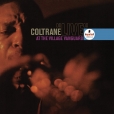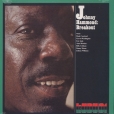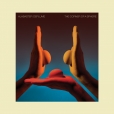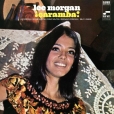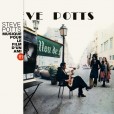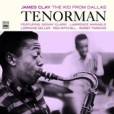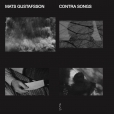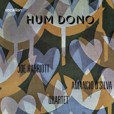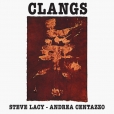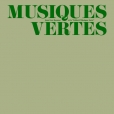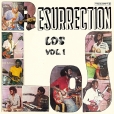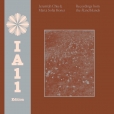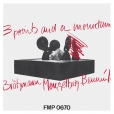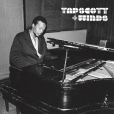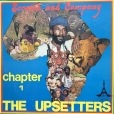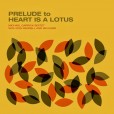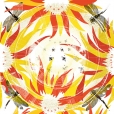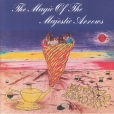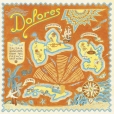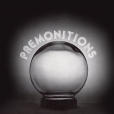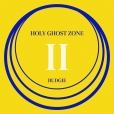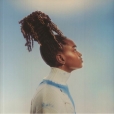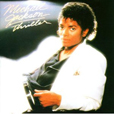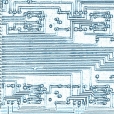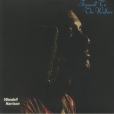Your basket is empty

The more expensive iteration is from Acoustic Sounds.
This saxophonist came through with the likes of Roy Ayers and Joe Henderson in the sixties, before hooking up with Steve Lacy in Paris in 1973. In this soundtrack composed for a film by his friend Joaquin Lledó — entitled Le Sujet Ou Le Secrétaire Aux Mille Et Un Tiroirs — he was joined by members of the group around Lacy, and diverse co-conspirators including friends from the funk outfit Ice, French accordionist Joss Bassellion, and none other than Jef Gilson at the mixing desk. It’s a dazzling, intensely entertaining blend of modal, cosmic and spiritual jazz, free funk, dirty grooves, heavy jams, bistro boogie and Javanese wah-wah.
‘Alone at night. Large church room. Lots of air. Stone. Wood. Glass. Quietness. Stillness. The dead and the alive. Surroundedness.
‘Existentialistic matters spinning. Peaceful state of mind. The dialectic equilibrium of complete stillness and deeper thoughts on contra-resistance on local and global levels. Fighting (y)our stupidities. Contra.
‘I have never ever before gotten myself into such an unusual setting for a recording project. And yet, so simple. So naked. So peaceful. Alone at night. As we all are.
‘I borrowed the keys to the beautiful church of Gustafsberg, from my neighbor Rune.
‘I went there at midnight. Set up my recording gear. Old school DAT machine, tube pre-amps and two AKG 414s in an extreme stereo set-up, close to the horn. The horn of choice. The contrabass sax. The monstrous sax-machine “Tubax” made by the German engineer Benedikt Eppelsheim at the turn of the century. I sat down in the first row of benches. Breathing. Preparing. Contemplating. The saxophone positioned in the very middle of the church, close to the altar. More than 6 hours straight of low-end sax noise and many breaks later: the sun set. At around 7 am… I was done. I was alone the whole night. And yet, not all alone. Some things were going on in that church. In that room. I kid you not. Never audible. But strongly felt. Whatever presence of the old or new gods - old and new dreams - it effected the music and my mind. I let it happen. I let it all flow.
‘Alone at night. There is nothing to explain.’
Legendary jazz fusion of Indian, Caribbean and Eastern influences, from 1969.
With Joe Harriott, Ian Carr, Bryan Spring, Dave Green and Norma Winstone.
‘The Musiques Vertes project began in south east France during the late 1970s, spearheaded by Christine Armengaud, who was investigating a long tradition of musical instruments made with organic materials and plants. With the help of elderly people in the region, she was able to construct 240 instruments, long used for bird calling, dancing, as the toys of young shepherds and children, and much more, but which had been lost to common usage following the First World War.
‘In 1980 Jean-Yves Bosseur initiated a programme of collective music-making using the instruments reconstructed by Armengaud. Rather than working with professional musicians, he preferred locals and children he encountered in Aix-en-Provence between 1981 and 1982. Recorded by the legendary French ornithologist and wildlife field recordist Jean-Claude Roché, the Musiques Vertes album presents eleven musical excursions, utilising a series of instructions or games set up by the composer to encourage collective musical exchange, as well as a dialogic exchange between this practice and active listening within a natural environment.
‘Bubbling textures and atonalities, blended with sounds from the natural environment, intermingle with staggering birdsong-alike tonalities and rattling percussive passages, producing striking moments of abstraction that retain a remarkable sense of humanity and ease. A document of pure sonic magic and stunningly organic creativity.’
Jeremiah Chiu, Marta Sofia Honer
Recordings from the Aland Islands
International Anthem Recording Co.
Intensely evocative, meditative duets by modular synthesizer and viola, interwoven with field recordings — birds, the sound of forests — encapsulating sojourns on the Åland archipelago in the Baltic Sea, between Sweden and Finland.
Sparse, contemplative, classy, playful, deep jazz, recorded in 1983, with the focus on Tapscott’s brilliant piano-playing, accompanied by Aubrey Hart and Kafi Roberts on flute and saxophone. All-analogue; cut directly from the original master tapes. Tip-on sleeve.
Beautifully executed as usual by Gearbox, this is the first release of a 1968 BBC Jazz In Britain recording, forerunner of the classic Argo LP Heart Is A Lotus, issued two years later. With Don Rendell and Ian Carr.
Super-rare Chicago sweet soul LP, originally out on Arrow Brown’s Bandit label. ‘A string-laden fantasia straddling the street corner doo-wop of the ‘50s and the Me Decade’s studio excess. Backed by the Chosen Few and the Scott Brothers, arranged by Benjamin Wright, sung by Brown’s 17-year-old daughter Tridia and Moroccos falsetto Larry Brown.’ Lovey artwork by label-mate Eugene Phillips clinches the DIY, outsider appeal.
Digging yet deeper and more devastatingly in the gospel bins of the Black Atlantic, HGZII has its genesis in work undertaken for Kanye West and the Sunday Service in Wyoming, before enfleshment and fine-tuning back at home in the City of Angels.
The first time out for this near-mythical recording by the co-founder of the Tribe label.
Funky, spiritual jazz, with Phil Ranelin, Harold McKinney, Kareem Harris and the crew, in 1975.
Decent booklet, too, with a history of the label, and never-before-seen archival photos and rare ephemera from its mid-1970s heyday.
